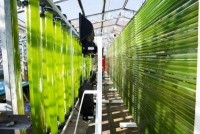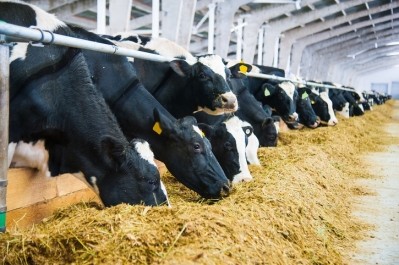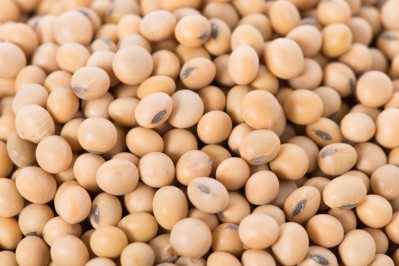UK university leads anaerobic digestion to algae for feed project

The idea is that nutrients produced from anaerobic digestion (AD) of food and farm waste will be used to cultivate algal biomass for animal feed and other products of value.
Project lead, Dr Carole Llewellyn, associate professor in applied aquatic bioscience at Swansea University, said the initiative, which is set to run for three and half years, is only just getting off the ground, but the fundamentals are strong.
“We want to contribute to food security, food sustainability. One of the objectives is to produce an algae derived protein biomass for use in poultry and fish diets,” she told us.
With expansion of the AD industry across Europe, there is excess nutrient waste, she explained. EU legislation and the introduction of nutrient-vulnerable zones across Europe to prevent nutrient run off causing pollution means that solutions need to be developed.
Algae require nutrients to grow and so the excess nutrients from AD of food and farm waste provide an essentially free source, said the scientist.
The research project is an Interreg North-West Europe (NWE) backed initiative. That EU Commission program looks to make the North-West Europe area an economic player, with high levels of innovation, sustainability and cohesion.
There are ten partners involved in the AD to algae initiative comprising university, industry and policy makers across the UK, France, Germany and Belgium. Swansea University will receive over €1m from the EU matched with €700,000 from the Welsh government.
Sustainable feed source
Xingen Lei, professor of animal science, at Cornell University in the US, says microalgae can serve as high quality, sustainable alternative feed protein. He will be speaking on this topic at Feed Protein Vision.
He says microalgae is now a well-received third generation feedstock for biofuel production, and defatted microalgae contains 40% or more crude protein and excellent amino acid profiles. Upon the oil extraction procedure, the defatted biomass also contains good amounts of n-3 fatty acids and micronutrients.
Lei will share results of 30 feeding trials carried out using broiler chicks, laying hens, and weanling pigs. He said the experiments demonstrated nutritional, metabolic, and environmental values of seven different defatted and full-fatted microalgae.
He will also reveal how laboratory tests have proved the bioavailability and health impacts of the enriched n-3 fatty acids and phytochemicals in the chicken and egg yolk of animals fed the microalgal biomass.










